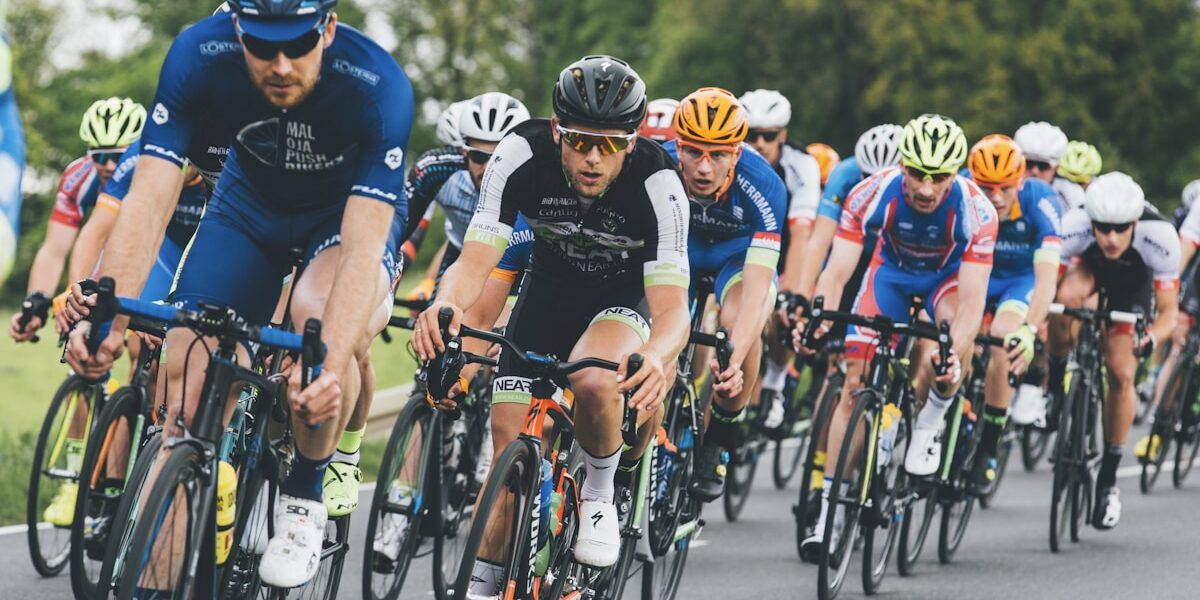Cycling Event Registration Tips
Signing up for cycling events has gotten complicated with all the different platforms, fee structures, and fine print flying around. As someone who has registered for more races than I can count — and messed up the process more times than I’d like to admit — I learned everything there is to know about nailing the registration game. Today, I will share it all with you.
I once missed out on a race I’d been training for because I didn’t set a reminder for registration day and it sold out in 20 minutes. Another time, I showed up to packet pickup on the wrong day because I didn’t read the email carefully enough. Learn from my mistakes, people.
Research the Event
Before you even think about clicking “Register,” do your homework. Hit the event’s official website and actually read it. When is it? Where is it? What’s the distance and route like? Does it match your current fitness level or are you setting yourself up for a death march? Check reviews or social media posts from past participants — they’ll tell you the real story about how organized (or chaotic) things are. I’ve dodged a few poorly-run events this way.
Early Bird Registrations
Probably should have led with this section, honestly. Early bird pricing can save you serious money — sometimes 30-40% off the standard rate. Popular events like Unbound Gravel or the Sea Otter Classic can sell out shockingly fast. Set calendar reminders for registration opening dates. Some events even have lottery systems, so you need to enter early just for a chance to participate. Don’t sleep on this.
Understand the Fees
Read the fine print on fees. That $80 entry fee might turn into $110 once you add processing fees, insurance surcharges, and whatever else they tack on at checkout. Some events include timing chips and post-ride meals in the fee; others charge extra for everything. Know what you’re paying for before your credit card takes the hit. I got burned once paying for a “VIP package” that turned out to be a slightly bigger goodie bag.
Health and Fitness Requirements
Some events require medical clearance, especially the more demanding ones. A few European gran fondos want a doctor’s certificate proving you won’t keel over at kilometer 80. Even if the event doesn’t require it, be honest with yourself about your fitness. If the course has 10,000 feet of climbing and your longest ride is 20 flat miles, maybe pick a different event first. Training should start well in advance — I aim for at least 12 weeks of structured prep for any big ride.
Required Equipment
Check the equipment requirements list. Every race requires a helmet — that’s universal. But some mandate front and rear lights, high-visibility clothing, or specific safety gear. Some gravel events require you to carry a minimum amount of water and food. Make a checklist and cross things off as you acquire them. Showing up without required gear means you don’t start. Period.
Read the Rules and Regulations
That’s what makes understanding race rules endearing to us rule-followers in the peloton — it keeps everyone safe and the racing fair. Every event has its own handbook. Know the cutoff times so you don’t get swept. Understand the feed zone rules. Know what constitutes a drafting violation if it’s a non-drafting event. Figure out the emergency procedures. I’ve seen riders get disqualified for things they could have avoided just by reading the rules beforehand.
Team Registrations
Riding with a team adds a whole layer of logistics. Some events offer team categories with separate pricing or dedicated start waves. Make sure every team member registers under the same team name — you’d be surprised how often this gets botched. Coordinate jersey orders, travel plans, and accommodation early. The more organized your team is before race day, the smoother everything goes.
Packet Pickup Details
Most events have packet pickup a day or two before the race. This is where you get your bib number, timing chip, course map, and whatever schwag they’re giving out. Some events offer race-day pickup, but lines can be brutal and the added stress isn’t worth it. If you’re traveling for the event, plan your arrival to make the scheduled pickup window. I always aim to pick up my packet the earliest possible time slot.
Accommodation and Travel
Popular events book out nearby hotels fast. Like, months in advance fast. If the event is out of your area, lock down accommodation as soon as you register. Look for hotels near the start line — being able to walk to the staging area is a game-changer for early morning starts. Some events partner with hotels for group rates, so check the event website for deals. Also think about parking, since many venues have limited spaces on race day.
Emergency Contact Information
Fill this out accurately. It’s not a throwaway field. Give the name and number of someone who’s actually reachable on race day. Make sure that person knows you’re participating and what the event is. Nobody wants to think about worst-case scenarios, but having accurate emergency info is critical if something goes wrong on course.
Medical Information
List your allergies, medical conditions, and medications honestly. If you carry an EpiPen or have a condition that first responders should know about, include that information. Many riders also wear medical ID bracelets during events. This isn’t paranoia — it’s smart preparation. Paramedics treating you on a remote stretch of road need to know this stuff.
Training and Preparation
A solid training plan makes the event enjoyable instead of miserable. Tailor your training to the specific demands — hilly course means hill training, long event means building endurance progressively. Practice on similar terrain if you can. Don’t forget nutrition rehearsal: figure out your fueling strategy during training rides, not on race day. Rest days matter just as much as hard days. Overtraining is real and it’ll wreck your performance.
Insurance
Event-specific insurance is worth considering, especially for expensive destination events. If you’ve shelled out for flights, hotels, and a $200 entry fee, a cancellation could cost you a lot. Some insurance covers injuries, lost gear, and even trip interruption. A few events include basic insurance in the registration fee — read carefully to know what’s covered. I’ve been glad to have it the one time I got sick before a big race and couldn’t travel.
Join Online Communities
Find the event’s Facebook group or Strava club. Previous participants share invaluable tips — best places to eat near the venue, which sections of the course to watch out for, what the weather’s typically like. You’ll also find training partners and people to share accommodation with. The cycling community is genuinely helpful, and tapping into that knowledge makes the whole experience better.
Event-Day Checklist
- Ensure your bike is dialed. Check brakes, tires, gears, and tire pressure the night before.
- Lay out all your gear — helmet, gloves, shoes, kit, sunglasses, nutrition. Everything where you can grab it half-asleep.
- Set multiple alarms. I use my phone and a travel clock because I don’t trust one device alone.
- Eat a breakfast you’ve tested before. Race morning is not the time to experiment with new foods.
Review Weather Conditions
Start checking the forecast a week out and get serious about it 48 hours before. Weather determines your clothing choices, tire pressure, and even your pacing strategy. Pack for multiple scenarios — a vest, arm warmers, and a rain jacket take up almost no space but can save your ride. Wind direction matters for pacing on exposed courses. I once ignored a wind advisory and bonked hard into a 25 mph headwind on the back half of a century ride.
Hydration and Nutrition During the Event
Know where the aid stations are and what they’re serving. Some provide only water; others have electrolyte drinks, gels, and fruit. Don’t rely entirely on aid stations — carry your own supplies as a backup. Set a timer on your bike computer to remind you to eat every 30-45 minutes on longer rides. The moment you feel hungry, you’re already behind on fueling.
Post-Race Recovery
Have dry clothes ready at the finish. Nothing feels worse than standing around in sweaty kit getting cold. Stretch, hydrate, and eat within 30 minutes. If the event offers massage or recovery zone services, take advantage. Your body just did something hard and treating it well now sets up your next training cycle. Don’t rush back to driving long distances — give yourself time to decompress.
Follow Up on Results
Most events post results online within a day or two. Review your splits, compare to your targets, and note what you’d change. Share your experience in the event’s community forums — your feedback helps organizers improve and helps future participants prepare. And post those finish line photos. You earned them.
Recommended Cycling Gear
Garmin Edge 1040 GPS Bike Computer – $549.00
Premium GPS with advanced navigation.
Park Tool Bicycle Repair Stand – $259.95
Professional-grade home mechanic stand.
As an Amazon Associate, we earn from qualifying purchases.



